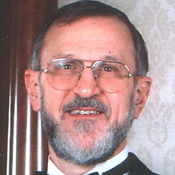Doctor to OR lawmakers: Ban e-cigs for minors, but don’t restrict adult use

Joel Nitzkin, physician and proponent of e-cigarettes for adults.
By Shelby Sebens | Northwest Watchdog
While the American Lung Association and other health groups lobby lawmakers to hold off on legislation that would ban minors from e-cigarettes, one doctor on the outskirts of the debate says go ahead — just don’t restrict where adults can use them.
Joel Nitzkin, a physician who owns a private consulting firm, will testify before the Oregon House Committee on Human Services and Housing at 3 p.m. Wednesday in favor of restricting so-called vapes from minors (he actually recommends upping the age from 18 to 21 to keep them out of high schools), but against legislation that would ban e-cigs anywhere cigarettes are banned.
Nitzkin, who is supported by the free-market, Washington D.C.-based think tank The R-Street Institute, told Northwest Watchdog he’s worried that banning e-cigarettes will send the message to smokers that they’re just as bad as cigarettes, possibly preventing them from switching to a safer alternative.
“That would be tragic,” he said. Nitzkin is in the minority in the public health community as many health organizations have called for legislation that labels e-cigarettes as tobacco, opening them up to similar heavy taxation and working them into their push for a smoke-free country.
“They’re basically very much against e-cigarettes,” he said. Ironically, the same organizations that want to keep e-cigs out of the hands of children are lobbying against the ban on minor use, according to a recent report by Watchdog.org. Major public health agencies want to see e-cigarettes labeled as tobacco products and regulated as such.
A few Democratic lawmakers have also introduced a bill that would increase the tobacco tax and define e-cigarettes as tobacco products. House Bill 4129 has been referred to the revenue committee.
The American Lung Association and the Centers for Disease Control and Prevention say the safety of e-cigarettes remains unknown and the U.S. Food and Drug Administration has yet to make a determination about them. But Nitzkin said there’s a growing body of evidence that shows they help adults who were otherwise not interested in quitting stop smoking cigarettes.
He argues e-cigarettes could be more effective than other cessation products in getting adult smokers to quit.
“E-cigarettes are the only product that we have that can meet the needs of these people,” he said, adding that many smokers want the freedom to still puff away.
Both proposals, House Bill 4073, which bans the sale of e-cigarettes to minors, and House Bill 4115, which bans the use of e-cigarettes where tobacco products aren’t allowed, have bipartisan support.
Nitzkin said he’s on the outskirts in the public health community because it’s hard to get neutral support for his cause. R-Streets reportedly has taken some tobacco money, but Nitzkin points out many major health organizations take funding from pharmaceutical companies that create tobacco cessation products and might have something to lose if e-cigarettes take off.
“It shows the threat to the pharmaceutical industry,” he said.
Corvallis has already banned the sale of e-cigarettes by minors and prohibited them in areas where tobacco smoking isn’t allowed. Health officials say they’re concerned about the long term effects of secondhand vape smoke and the health impact of unknown chemicals that could be in the unregulated product.
After losing a court battle to e-cigarette companies when the FDA tried to ban them from the market, the federal agency has been dragging its feet on its next move.
“And everybody is still waiting,” Nitzkin said.
Contact Shelby Sebens at Shelby@NorthwestWatchdog.org
Like Watchdog.org? Click HERE to get breaking news alerts in YOUR state!
The post Doctor to OR lawmakers: Ban e-cigs for minors, but don’t restrict adult use appeared first on Watchdog.org.







